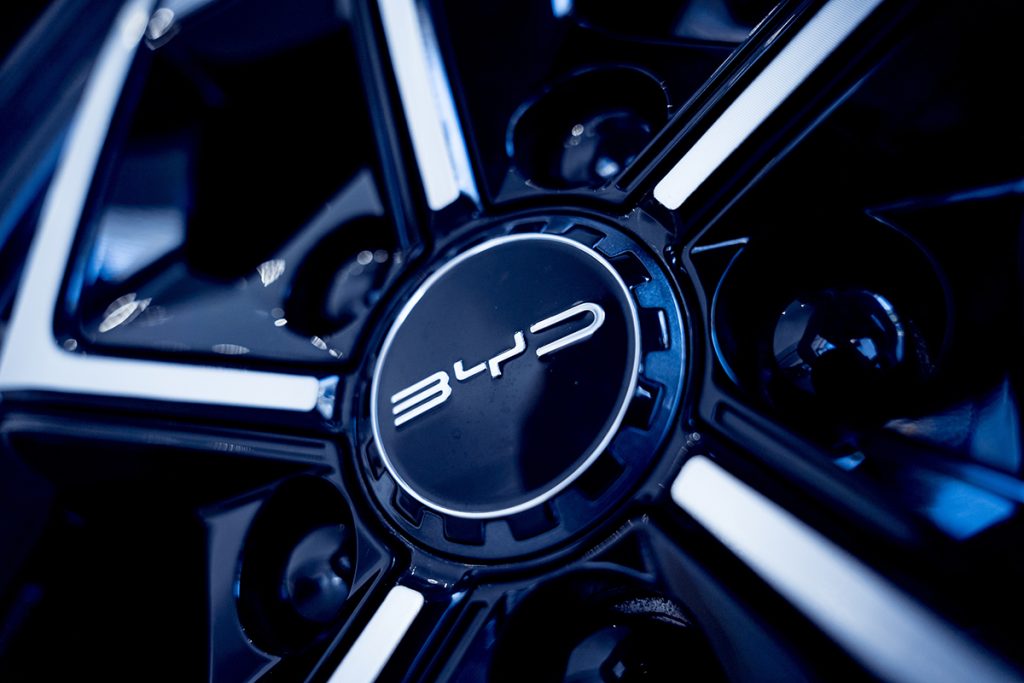In a surprising twist, Chinese automaker BYD has emerged as the frontrunner in electric vehicle (EV) sales globally, momentarily surpassing Tesla, a company once underestimated by its CEO Elon Musk. The recent revelation of BYD’s hybrid powertrain boasting an unparalleled 1,300-mile range has reverberated throughout the automotive sector, positioning the company as a formidable contender against established giants like Toyota.
BYD’s rapid ascent highlights the swift evolution of the electric vehicle market, challenging conventional notions of automotive innovation. Elon Musk, who previously downplayed BYD’s potential, now acknowledges the competitive threat posed by Chinese EV manufacturers, recognizing their capacity to disrupt the industry worldwide.
The significance of BYD’s breakthrough cannot be overstated. Not only has the company outpaced Tesla in EV sales, but it has also introduced pioneering technology that pushes the boundaries of hybrid vehicles. While most hybrid cars typically offer ranges of around 680 miles, BYD’s latest powertrain promises to revolutionize the industry with its unprecedented range, offering consumers an unmatched driving experience.
A key factor driving BYD’s success is its ability to produce affordable vehicles without compromising quality. With sedans starting at just $14,000, BYD provides an attractive alternative to traditional car manufacturers, capturing the interest of consumers worldwide. This competitive pricing, combined with innovative technology, has propelled BYD to the forefront of the automotive industry, surpassing even established players like Volkswagen in the Chinese market.
Despite initial doubts from industry insiders, BYD’s meteoric rise has silenced skeptics. From its humble beginnings as a small car producer to a global powerhouse brand, BYD has showcased its resilience and adaptability in the face of challenges. Elon Musk’s dismissive comments in 2011 now appear distant as BYD continues to exceed expectations and challenge the status quo.
While Tesla maintains its dominance in the American EV market, its position is not impervious. With consumers increasingly seeking more affordable options, Tesla faces strong competition from foreign rivals like BYD, whose success stems from a blend of technological innovation and cost-effective manufacturing.
Furthermore, BYD’s venture into hybrid technology adds complexity to the landscape for traditional carmakers. In a market where infrastructure for fully electric vehicles remains limited, hybrids offer a practical solution for consumers seeking fuel-efficient alternatives. With the introduction of its new hybrid powertrain boasting a 1,300-mile range, BYD has positioned itself as a leader in shaping the future of transportation.
Nonetheless, challenges lie ahead for BYD and other Chinese EV manufacturers. Stringent tariffs and regulatory barriers continue to shield US carmakers from foreign competition, presenting hurdles to BYD’s expansion into new markets. Nevertheless, as consumer preferences shift towards more affordable and environmentally sustainable options, the tide may soon favor companies like BYD, whose innovative approach to car manufacturing is reshaping the automotive landscape.
BYD’s remarkable rise to the pinnacle of the global EV market underscores the potency of innovation and resilience. With its groundbreaking technology and competitive pricing, BYD has not only surpassed Tesla but has also established a new benchmark for hybrid vehicles, compelling traditional carmakers to adapt or risk obsolescence in an ever-changing automotive industry.


